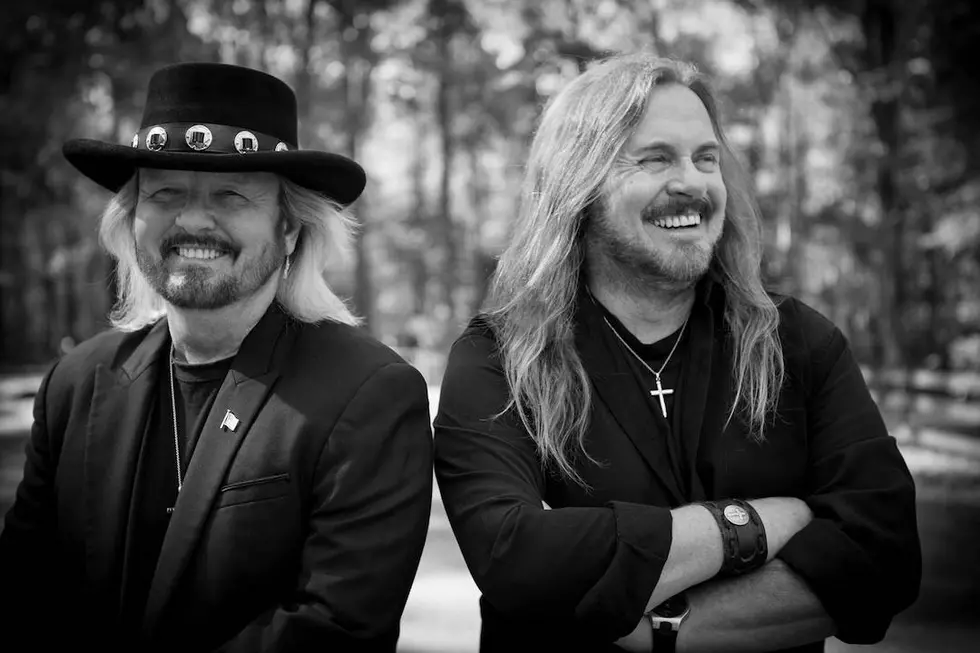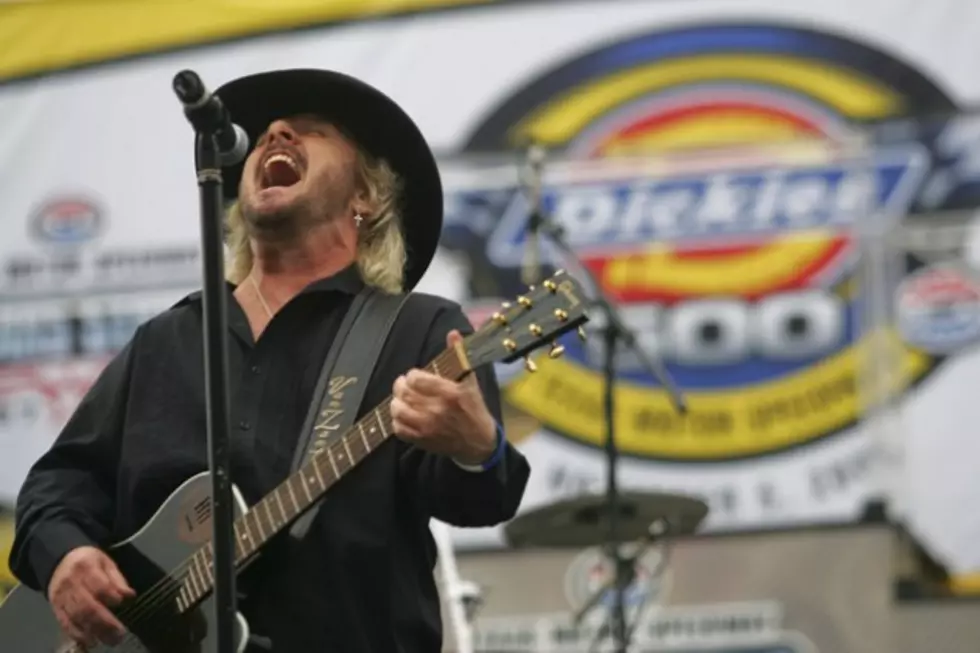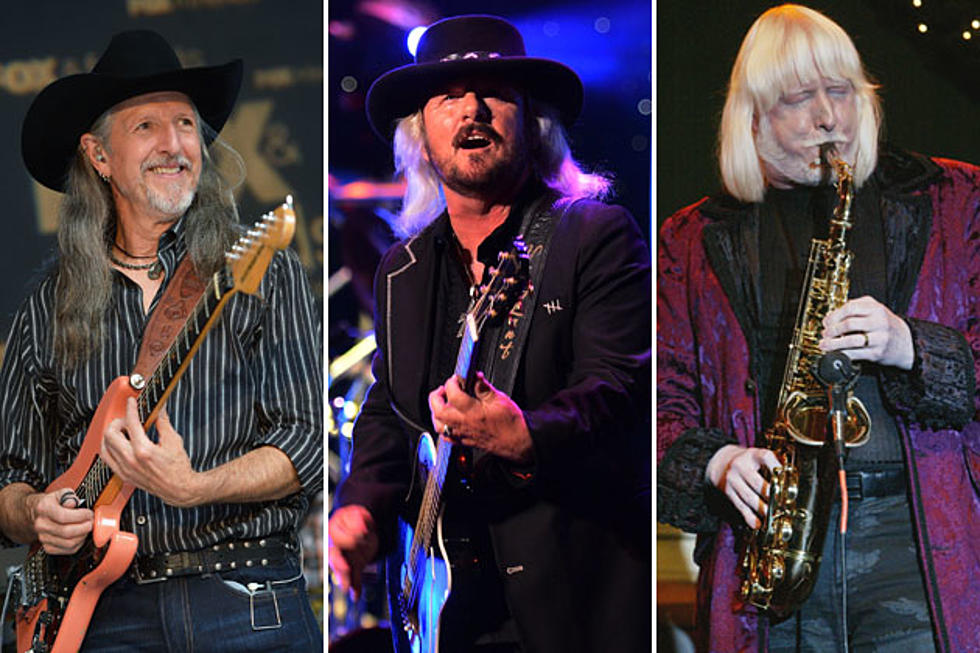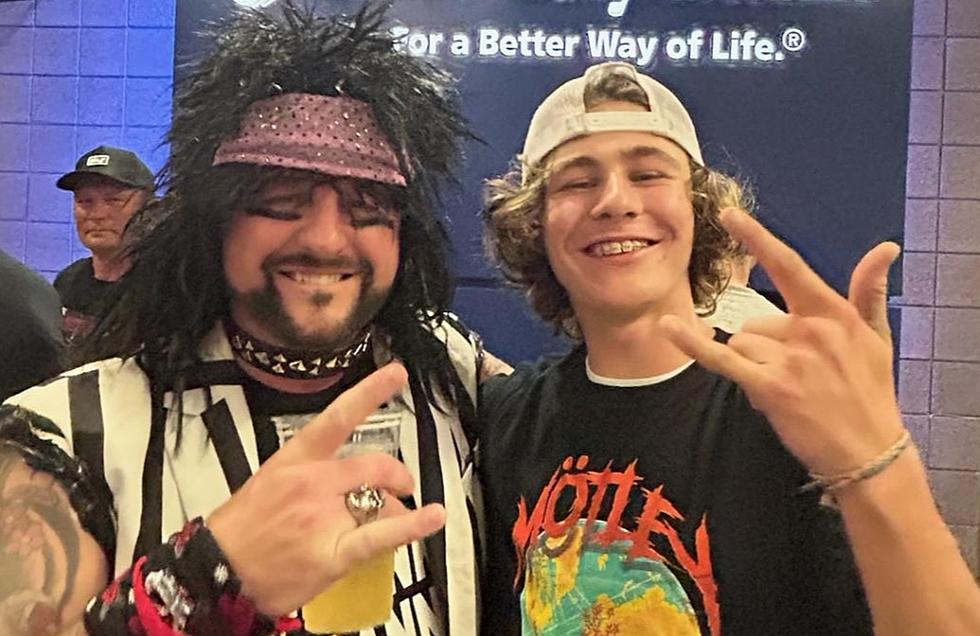35 Years Ago: .38 Special Break Through with ‘Wild-Eyed Southern Boys’
With their first three albums, .38 Special managed to carve out a medium-sized niche for themselves in the Southern rock market, but they were still looking for their first big hit — and trying to set themselves apart from groups like Lynyrd Skynyrd and the Allman Brothers Band.
The comparisons were only natural, given the cultural and geographical background shared by the bands — not to mention the fact that .38 Special singer Donnie Van Zant's big brother Ronnie co-founded Skynyrd. Still, the group chafed under the way they felt they'd been pigeonholed, and with their fourth album, 1981's Wild-Eyed Southern Boys, they did something about it.
The album title, as guitarist and singer Don Barnes explained during an interview with the Orlando Sentinel, was "kind of a send-up of a whole Southern rock thing." In fact, rather than playing up the band's grizzly Southern reputation, it found them pivoting toward a sleeker, more radio-friendly sound. "Our manager was saying how hard it was to sell people on a band that they still categorized as just another Southern rock band. We always felt we were more than that," added Barnes. "If that meant getting a bit more contemporary in our style or dress or haircut, that's something we weren't afraid to do."
To that end, the members of .38 Special and producer Rodney Mills set about refining the double-drum boogie rock approach they'd taken with the first three albums. Tightening up their arrangements while stepping up their focus on songcraft, they no longer sounded like a Southern band as much as a band that happened to be from the South — a move that, as Barnes explained, was entirely deliberate.
"You can't sing about whiskey and alligators forever," he told the Morning Call. "We used to be looked at as bad boys. Bikers with guitars. But we're people with sensitivities, too."
Those sensitivities came out in a batch of new tracks that included some pivotal collaborations with an outside writer. Jim Peterik, then trying to achieve mainstream success with his band Survivor, was brought in to work with Barnes and guitarist Jeff Carlisi, and the sessions produced four songs that ended up on Wild-Eyed Southern Boys — including the Peterik-written title track and "Hold On Loosely," which ended up serving as the album's leadoff cut and first single.
With "Hold On Loosely," .38 Special found the bridge to the Top 40 that had eluded them thus far. The song shot to No. 27 on the pop charts while making it all the way to No. 3 at rock radio, paving the way for "Fantasy Girl" and the title track to make further airplay inroads in its wake. The album, meanwhile, peaked at No. 18 and went platinum, the first of the group's LPs to do so.
Listen to "Fantasy Girl"
While the band had been together for the better part of a decade and were certainly capable of getting an LP's worth of material together on their own, Peterik's addition to the mix introduced new layers and influences to the .38 Special sound, leavening their old-fashioned rock aggression with hooks and techniques borrowed and absorbed from across the spectrum.
"The bridge was straight out of the Doobie Brothers songbook. If I look at that song, it's kind of a meld of a lot of influences of mine from that time," Peterik said of "Hold On Loosely" during an interview with Songfacts. "The eighth notes are very Cars-like from that time and the bridge was 'What a Fool Believes' upside down. It was a great moment and led to a series of .38 Special songs that I wrote with them. After that came 'Caught Up in You,' 'Fantasy Girl,' 'Wild-Eyed Southern Boys' and all of those. It was a great run."
Wild-Eyed Southern Boys did indeed kick off a remarkable run for the band, which continued the next year with the even more successful Special Forces — again featuring Peterik co-writes — and lasted through the end of the decade, all while .38 Special continued straddling the divide between swamp rock and mainstream pop.
"Radio is a strange beast," Barnes told the Gainesville Sun. "Without having radio on your side, you can't make a good living. You can't have your songs reach the people. A lot of people don't consider 'pop' music a true art, but when someone like myself has grown up on the radio, and listened to all the elements of the hit songs of the '60s and '70s, you grow to appreciate the craftsmanship."
Over the years, that focus on craftsmanship would take the band further from its hard-rocking roots, and by the time they scored their final Top 10 hit with the ballad "Second Chance" in 1989, some fans felt they'd drifted too far from the .38 Special of old. But as Barnes pointed out, like many rock bands of the era, they needed to make concessions to remain commercially relevant.
"Of course, you do tailor it a bit to appease radio, and at the same time the bottom line is when the 'artist' part of it comes out and it excites you inside," he continued. "It becomes an exercise in making your songs undeniable every time you put them out. The American public are very fast-food oriented. A song zips by on the radio so fast, and if someone can't really catch the hooks, or can't sing along with it, or if something doesn't strike them, then psychologically they tune out. You have to watch out for those things."
A combination of exhaustion and changing trends contributed to turnover and declining sales toward the end of the '80s, and in 1987, Barnes — along with second drummer Steve Brookins — walked away from the band. Five years later, Barnes returned, serving as the linchpin of a lineup that has continued to tour even as a growing number of .38 Special vets dropped out. The retirement of bassist Larry Junstrom in 2014 left Barnes the last original member standing — and wiser after a career's worth of ups and downs that were largely spent on tour.
"We'd do interviews and people would ask, 'How do you feel now that you've made it?' and we were just so weary," he admitted years later. "Our management was always about pushing forward, saying, 'Don't be complacent, because there are bigger things to get.' If I had to do it all over again, I'd try to enjoy myself a little bit more."
See the Top 100 Albums of the '80s
More From 96.5 The Walleye




![Listen for the 38 Special Song of the Day and Win! [CONTEST]](http://townsquare.media/site/502/files/2014/10/38-Special_Rick-Diamond.jpg?w=980&q=75)





